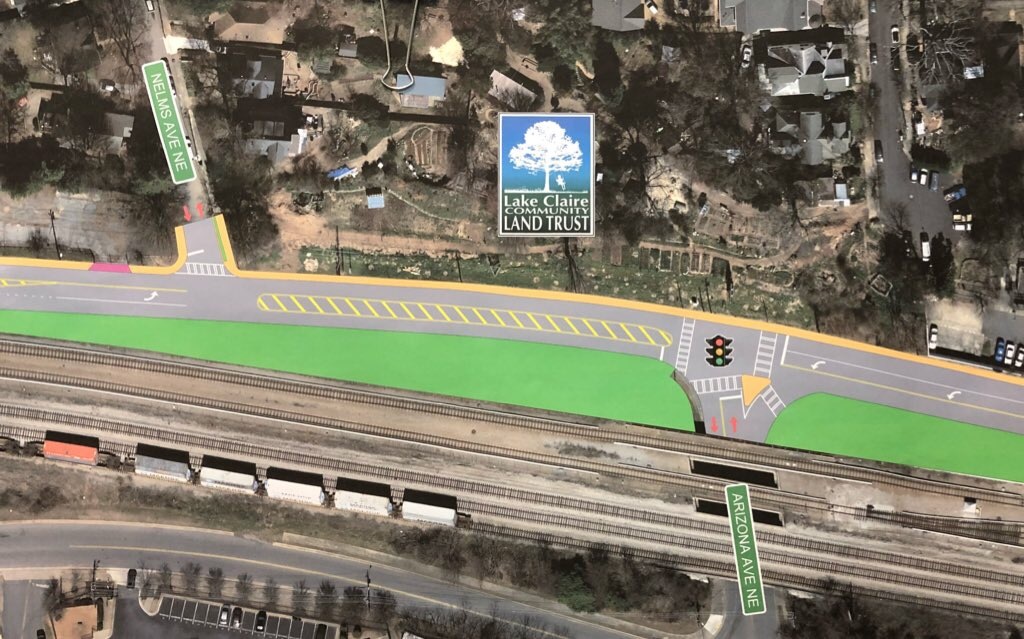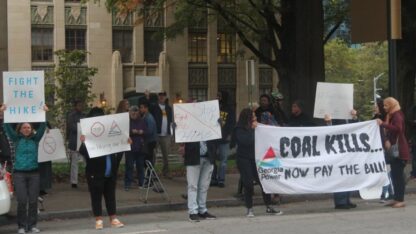The Lowdown On Reversible Lanes As Atlanta Plans To Get Rid Of One

The reversible lane is going away in the first phase of changes to DeKalb Avenue. In its place will be center turn lanes.
Renew Atlanta
Atlanta is saying goodbye to one of the city’s most controversial traffic features: DeKalb Avenue’s reversible lane.
Some residents call it “the suicide lane.” And as the city announced its definitive plan to remove the lane at a recent public meeting, many even broke out into applause.
But among traffic engineers, the view of the road design is much more nuanced. Understanding the logic behind reversible lanes means understanding a fact about most U.S. roads.
“When roads are planned and designed, they’re really only planned and designed for full utilization a few hours a day,” said Briand Wolshon, a professor at Louisiana State University.
Wolshon said we build roadways for rush hours, which he said could be just 20 percent of the day. During any period outside that, infrastructure is basically going to waste.
“So the idea with reversible lanes is that we’re taking advantage of that infrastructure,” he said.
That could save costs, Wolshon said, and it could also preserve land that you might otherwise need to add more lanes to a street or highway.
And overall he said the technique is effective. His research shows turning one of two lanes on a road into a reversible lane can almost double its capacity in that direction.
In the case of DeKalb Avenue, safety, not capacity, seems to be the concern of many residents, and Wolshon couldn’t comment on the specifics of the road’s design.
His example of a well-functioning reversible lane is Connecticut Avenue in Washington, D.C. It has few special signals, and, instead, is controlled by the drivers who use the road each day.
But ultimately, Wolshon, said it does matter how the public feels. And around the country, he’s seen more cities move away from reversible lanes.
“Traffic and streets and highways, for better or worse, there’s a bit of a democracy there,” he said.
In Atlanta, it seems the people have spoken too. DeKalb Avenue’s reversible lane is expected to disappear in the next year.








